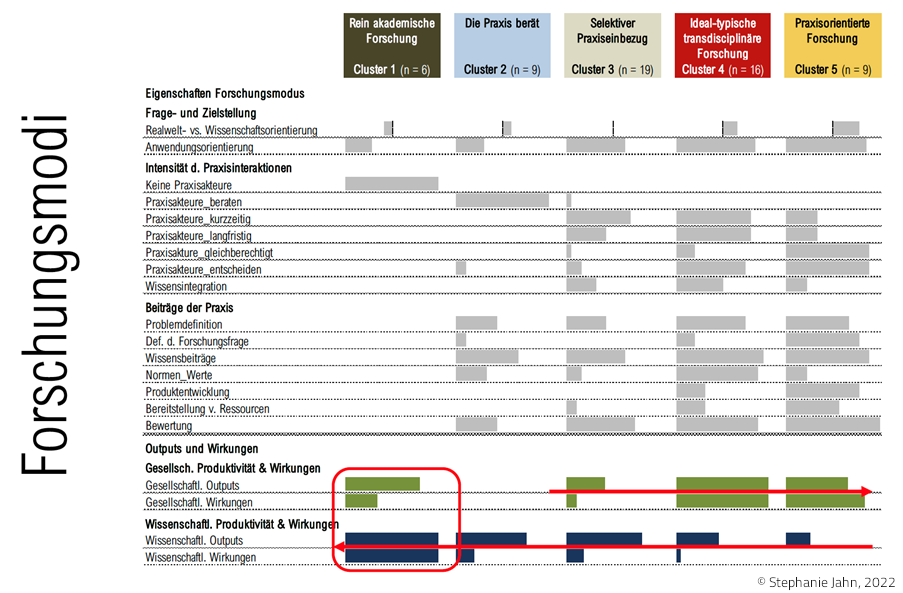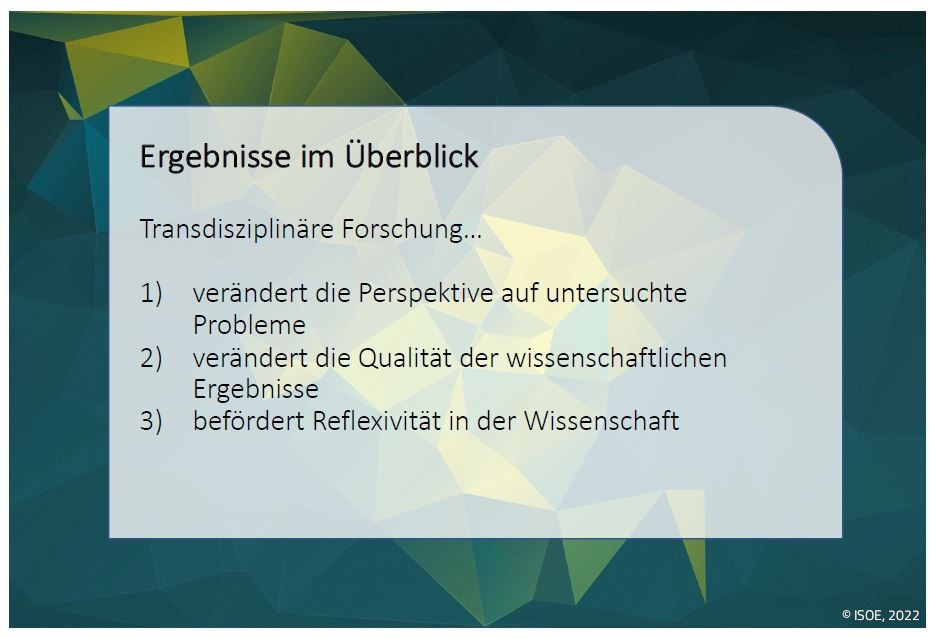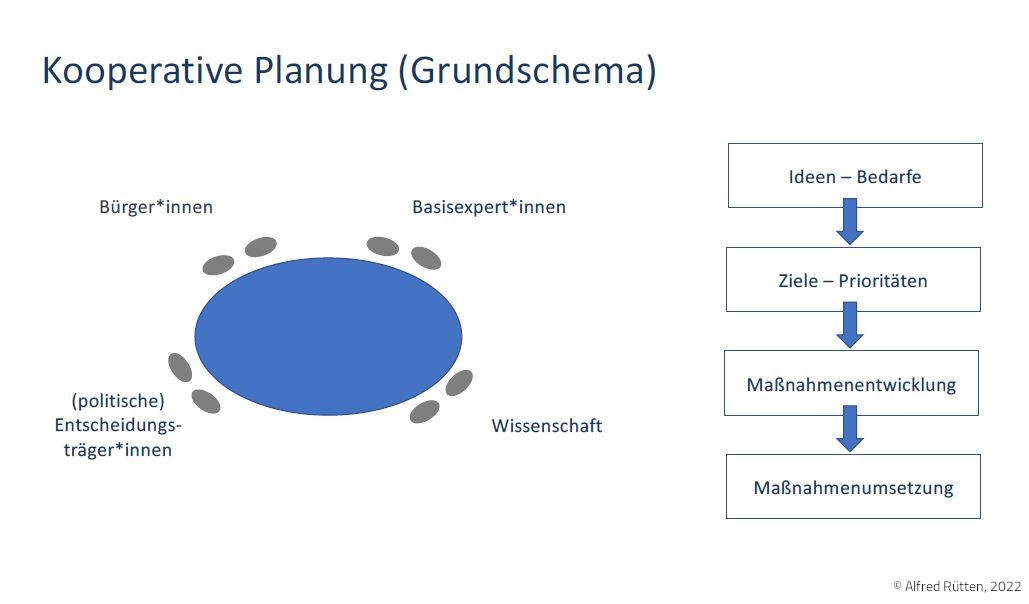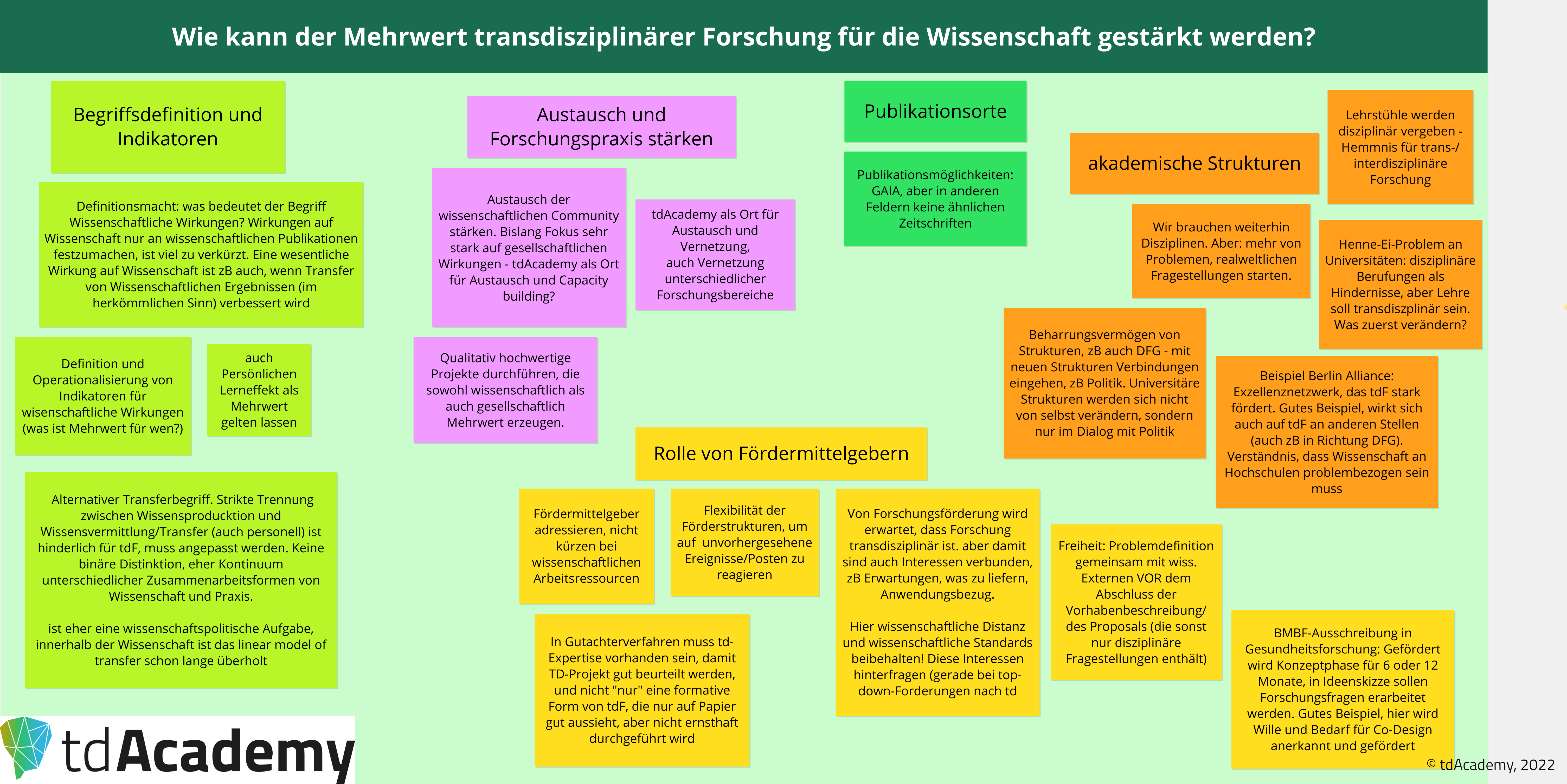On June 10, 2022, ISOE - Institute for Social-Ecological Research organized an online workshop as part of the topic line 2 to reflect on scientific impacts of transdisciplinary research. The target group of the format were scientists who do or are interested in transdisciplinary research. More than 40 participants from German-speaking countries took part in the event coming various fields such as environmental sociology, health research or impact research
The event was motivated by the observation that in recent years much has been discussed and published about the societal effects of transdisciplinary research. The added value for science/research, on the other hand, has hardly been considered. In science research, the concept of scientific impact usually is linked to a quantitative assessment of fixed indicators, especially citations of publications (impact). However, the workshop is based on the assumption that the transdisciplinary mode of research brings changes with regard to research practices (e.g. methods, design of research processes), research objects and research results. With the workshop, ISOE wanted to bring the topic of scientific effects into the community of transdisciplinary researchers and to stimulate a first exchange.
Three lectures with different perspectives on the topic of scientific effects of transdisciplinary research.
In the first part of the event, three inputs presented different perspectives on scientific impacts of transdisciplinary research.
Stephanie Jahn (Helmholtz Centre for Environmental Research (UFZ) / Leuphana University of Lüneburg) presented in her input various modes of transdisciplinary sustainability research. The basis was a quantitative analysis of 59 inter- and transdisciplinary projects from sustainability research. This empirical data provided insights into the tension between social and scientific impacts.

In the second input, Oskar Marg (ISOE - Institute for Social-Ecological Research and tdAcademy) presented findings on the question of what impact transdisciplinary research has on scientific knowledge and reflexivity. These were the results of an ongoing study conducted by ISOE as part of tdAcademy's topic line 2. Data basis were qualitative interviews with 22 professors of the subdisciplines environmental sociology, sustainable chemistry and participatory health research, who also had experience with transdisciplinary research.

Last but not least Alfred Rütten (Friedrich-Alexander-University Erlangen-Nürnberg) presented the concept of cooperative research/planning that is applied in health research, especially in sports science and public health science. The goal of cooperative planning is to generate knowledge together with citizens, decision-makers and experts and implement this knowledge. Thus, the approach of cooperative research has great overlaps with transdisciplinary research.

Exchange on the experiences of the workshop participants.
In the second part of the event, participants discussed their own experiences and perspectives on scientific effects of transdisciplinary research in three parallel groups. They also collected ideas on how the added value of transdisciplinary research for research in general could be strengthened. Observed effects were, for example, an expansion of the personal repertoire of methods, changes in teaching, or follow-up projects. Added values of transdisciplinary research were seen in the fact that in this way needs from society are identified and science can respond to them, or that scientific results can be directly tested in practice. One of the challenges mentioned was the time required to document the project experiences and insights, and to elaborate them it into publications, especially against the background of the frequent project character of transdisciplinary research.

In the evaluation of the workshop, the participants rated the event very positively and confirmed that the topic of scientific effects is currently given too little attention compared to the social effects of transdisciplinary or transformative research. They considered the workshop as an important initiative, and there was interest in further exchange on the topic.
